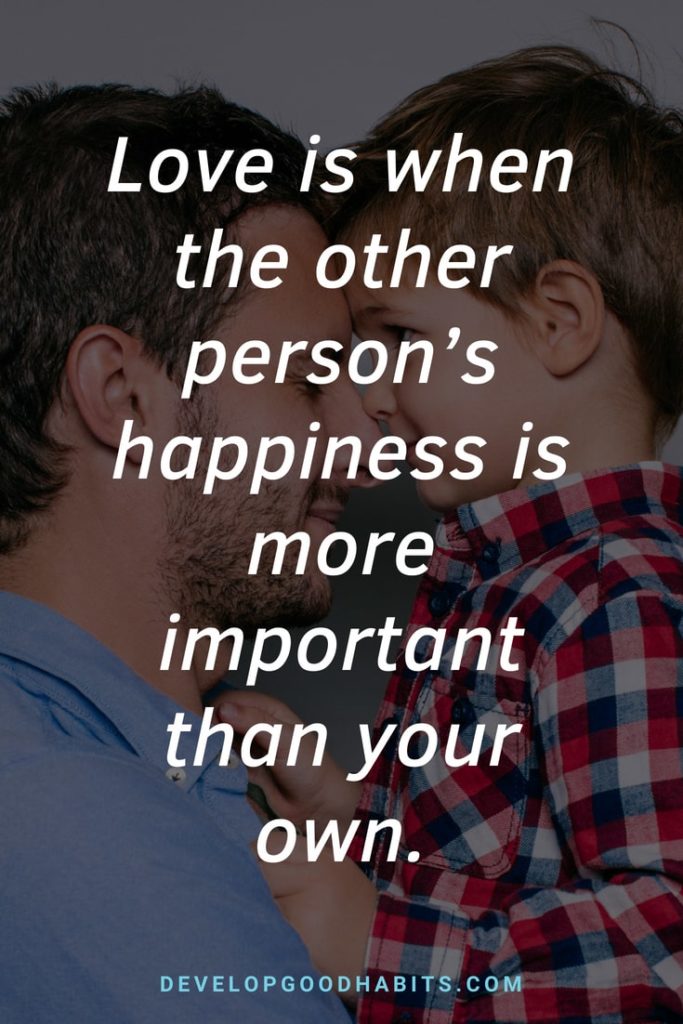Trust.
It’s a tricky business.
And despite how confident someone may appear to be on the outside… if you look closely enough, you can usually see a looming shadow of self doubt.
That self doubt often leads to trust issues.
Think about it.
We’ve all questioned ourselves, or a relationship we are involved in, at one point or another.
Whether it’s a romantic relationship, a friendship, a workplace scenario… you’d be lying if you said you never experienced any kind of speculation.
Why did I get passed over for that promotion?
Why did my best friend cancel our coffee date twice this week?
Why is my husband so obsessed with the gym all of a sudden?
Why is my wife so dressed up to take our son to basketball practice?
The Importance of Trust in a Relationship
It has been said that relationships are built on trust.
And if that is true, learning how to build trust in a relationship is where it all starts.
In this article, I will share 7 steps for building trust in a relationship.
Some will be more generalized.
Some will be specific to romantic relationships.
Choose the ones that pertain to your situation and take it from there.
Step 1: Put Words into Action
Don’t make promises you can’t keep.
The notion seems so simple… yet many of us have found ourselves on either the giving or receiving end of broken promises at one time or another.
And it sucks.
Think about when you were a kid and your dad promised he’d be at your football game after school… but then had to work late.
Or when your best friend promised to help you study for a big test… but then blew you off to go to the movies with her boyfriend.
Sure, things can happen.
Once, even twice.
But when broken promises become the norm, it’s hard to trust that things will ever change.
Instead, that person starts to lose your trust.
Scenario One: you tell your boss that you can have a marketing report to him by end of day, but know you also have to get home early for your daughter’s ballet recital… who is going to be disappointed?
A). Your employer when you aren’t able to finish the work
B). Your child when you are late or miss the recital to get your work done
Either scenario makes you look bad to someone who is supposedly important to you.
Someone who trusts you.
Scenario Two: your fiance promises that she has quit smoking, but then you catch her doing it at a party one month later.
How would you feel?
Hurt?
Angry?
Lied to.
Lying is one of the easiest ways to break someone’s trust… as you begin to wonder what else they’ve lied about?
Scenario Three: if you make a promise to your spouse that you will meet him or her for drinks with colleagues after work… then you need to make sure you get there.
After all, you are only as good as your word.
So by not keeping your word, you are basically saying, “You’re just not that important to me.”… which doesn’t fly in relationship.
If someone is counting on you, you need to come through.
Simply put.
In fact, it’s better to immediately say you can’t do something than it is to create false hope.
False hope leads to disappointment.
Disappointment leads to a damaged sense of self worth.
And that is where trust first begins to crumble.
Say what you mean. Mean what you say.
Be someone people can count on and trust will form.
Step 2: Be Clear and Concise with Your Feelings
Communication is key in any relationship.
Having the same marriage goals help keep your relationship on track.
If you are unhappy or upset about something, and choose not to speak openly about it, those damaging feelings will only fester.
Possibly even breed resentment.
You will drift apart from one another… or unconsciously remove yourself from a situation that could have potentially been fixed.
Being clear and upfront about your feelings, whether good or bad, is so important in maintaining trust with another person.
They may not always like what you have to say, but they will respect you for saying it.
This is especially true of romantic relationships.
Your partner would rather hear you say that you’re feeling unappreciated in the relationship then have you hold in anger for months, even years…. making the problem bigger than it is in your mind.
Believe me.
Your mind will play tricks.
It only takes your side and is not without bias.
It will convince you that there is something to worry about… even when there may not be.
And that is something you may have figured out quicker, had you only spoken to your partner directly instead of cultivating self-made drama.
Communication should always be a priority when setting relationship goals.
It should also be one of the first courses of action when attempting to build and maintain trust.
To help you communicate better, check out the relationship worksheets we've rounded up.
Step 3: Remove Yourself from Negative Social Media
Accessibility to social media can be a wonderful thing.
It’s a way to reconnect with old friends.
Stay in touch with the people you care about.
You’ll even find useful tips, recommendations and information from people with similar interests, experiences and tastes as you.
But, there is also a dark side to social media.

The side that paves the way for nasty comments, damaging photographs, casting judgements and heated debates.
Think of it as hearing someone talk about you behind your back… but to an auditorium full of people at once.
It’s where bullies and homewreckers go for kicks.
Sadly, as much good as there is to be found online… there is just as much bad.
Maybe you’ve been publicly attacked or teased online.
Perhaps you’ve seen comments on your boyfriend’s social media page from other women that gave you pause.
Is he cheating?
Maybe you read a tweet from one of your top employees, alluding to themselves looking for another job.
Is any of this true?
Is all of it true?
Maybe.
Trust, however, needs to come into play here.
Say you never saw these things… would you still have your doubts?
Trust in the communication you have with your partner.
Do not air your dirty laundry on the Internet.
If you do come across something that reflects upon yourself or your relationship poorly… have a conversation about it.
It is better than the alternative… driving yourself nuts gathering “evidence” from these sites. Evidence which, more times than not, doesn’t tell the whole story.
So do yourself a favor and don’t engage.
And if you must… talk about what you saw openly and honestly to avoid doing any irreversible damage to the trust you’ve been desperately trying to build.
Check out these apps for couples that can serve as alternatives to social media apps.
Being too exposed to social media may even lead you to develop the bad habit of “doomscrolling.” The video below shows you our five strategies to help you break this bad habit.
Step 4: Give Your Partner Their Space
Suffocation is a big killer when it comes to building or maintaining trust in a relationship.
Not literal suffocation, mind you… we’re talking about the emotional and mental suffocation that often goes hand in hand with trust issues.
Psychologists will often say that couples who are joined at the hip, have some level of distrust. That they felt the need to keep an eye on one or the other.
Sometimes each other.
Now, this is not always the case… but it happens a lot.
If you are keeping your partner at arm’s length, why?
What do you think will happen if he or she goes out with their friends or colleagues without you?
Have they given you some reason to doubt their faithfulness?
Even when there may be nothing to worry about, you are making them feel guilty by keeping their whereabouts in check.
You are not their parent… you are their partner.
They should not have to answer to you about how they choose to spend their free time, as long as they are respectful of your needs and communication is open.
Obviously, if you are home with the kids all day and you husband decides to go out multiple times a week without returning the favor… that may be an issue.
Or if your wife refuses to tell you where she is going… that may be an issue.
Or, if your partner is spending tons of money that you don’t have to foster a one-sided hobby… that may be an issue.
However, if you go over the calendar and find some dates that work for you both to enjoy some time apart… that is not an issue.
If you share a budget and allot a certain amount for each of you to spend on something you enjoy… that is not an issue.
In fact, it is healthy.
Letting go of the reigns a bit sends your partner a message that you value their personal space and trust their judgement.
That you trust them.

Furthermore, it will often have an effect where they value their time alone with you even more… they will appreciate what you have together. The life you’re made.
If you can’t loosen the grip, you need to ask yourself why before accusing your partner of something… as that will only damage the relationship.
I promise you.
On the other hand, if you have a gut feeling that something is amiss, you need to communicate that before you go around playing detective and tracking their every move.
Doing so will only end badly.
Step 5: Resist the Temptation to Look Through Your Partner’s Phone
We’ve all been there.
Minding our own business, going about our routine… when you hear a text message alert on your spouse’s phone at an unusual hour.
Who is texting my wife at 6am?
Who is my husband chatting with before bed?
You are human.
It’s only natural to want to check who the messages are from.
What they say.
But it is a violation of trust to do that.
A big one.
My husband and I know each other’s passwords on our phones, computers, etc… we have nothing to hide.
We trust one another… yet, I’ll admit.. I’ve still been tempted to look.
Why is that?
Is it because I’ve been hurt or betrayed in the past?
Where does the distrust stop?
The temptation to look through someone’s phone or computer doesn’t necessarily only extend to your significant other.
When it comes to trust, you might also be tempted to “cyber stalk” a co-worker… a sibling… or your own child.
After all, it’s tempting to want to peek at your teenager’s snapchat account, sift through their messages.
But what kind of message are you sending by doing any of that?

If the foundation of communication is strong, you likely have very little to worry about.
So do yourself a favor and resist the temptation to peek… and keep your trust issues in check.
If you can’t, then it may not be a bad idea to speak to someone about what you’re feeling before they bubble out of control… spilling over into the relationship.
An unbiased third party, such as a counselor or pastor, is a great place to start.
Step 6: Make Romance a Priority
Date night.
It sounds so “1950’s”… but it’s a concept that has withstood the test of time.
Why?
Because it works.
Couples need to make alone time a priority in order to keep their relationship strong and their trust intact.
Life happens fast… which makes it very easy to allow certain things, and people, to fall to the wayside.
Work.
Kids.
Volunteering.
We are often forced to make room for so many things in our day, that we begin looking for the things we can put off.
Sadly, dinner out with your husband or wife is often one of the most postponed items on the calendar.
There’s always next week.
But what if something were to happen next week.
Or the week after that.
Making time for your partner tells them that they are a top priority. It lets them know that he or she means something to you and that you would move mountains to be with them.
Reconnect.
Check in with one another.
Air any grievances.
Date nights can be romantic… or adventurous.
Low key or fancy.
It can even be sitting at home together, curled up on the couch watching a movie in peace.
If gift giving is your love language, here are some self care gifts you can give.
Trust is more or less tied to intimacy, which calls for frequent reassurance over time.
The closer and more vulnerable you feel to one another, the deeper your sense of trust will grow… making it essentially impossible to break.
If you feel that you “don't have time” for romance, take a few minutes to watch the video below.
Step 7: Be Your Best Self and Improve Your Self Esteem
There is nothing sexier than a man or woman who knows what they want.
And if someone’s self esteem is high, it is very unlikely they will have trust issues.
Why?
Because trust is directly linked to insecurity and self doubt.
For starters, both definitions include the word “confidence”. Whereas insecurity is a lack of confidence, trust is relying on strength or confidence. So it should come as no surprise to anyone that insecurity can in fact be a result of lack of trust.
While it’s quite normal to have feelings of self-doubt once in a while, chronic insecurity can sabotage your success in life and can be particularly damaging to your intimate relationships, according to Jennice Vilhauer Ph.D., a contributing writer for Psychology Today.
So what is the solution?
Well, lucky for you… it’s fairly simple.
Love yourself.
Make time for yourself.
Empower yourself.
Improve yourself.
Try by finding that one thing that you enjoy.

The thing that makes you feel good about yourself and puts you in a great mood.
It can help to center and ground you.
It may even push you to new limits.
For me, that thing was running.
I had always dabbled with it, but due to a variety of circumstances (knee surgeries, pregnancies, back issues)… never really stuck with it.
That was, until after I had my fourth child.
Having four children under the age of 5 years old can be stressful enough to a couple. Add to that the weight you’re having trouble losing and having next to no time for yourself… and I just wasn’t feeling the love.
No love for myself, that is.
I would run past full length mirrors.
Dreaded bathing suit season.
Had heartburn often.
Aches and pains.
Those extra 20lbs had made a huge difference… not just physically, but emotionally.
I didn’t like myself very much, which translated to unnecessary trust issues in my marriage.
I wondered if my husband were looking at other women.
I wondered if he still found me attractive.
I read into everything.
And, quite honestly, he didn’t give me a reason to.
He was as loving as ever.
Supportive.
A good dad.
A good provider.
He was home most every night, helping out with the dinner and bedtime routines. Taking the kids to their activities.
He went to work every day so that I could stay at home with the kids, writing part-time.
But none of that mattered because my self esteem had taken such a beating that I couldn’t see clearly.
I didn’t trust in his unconditional love for me. ‘
And talking to him wasn’t going to be enough… this was a case where actions would speak louder than words.

I had to show him that I was determined to be happy with myself, which would in turn make me a happier wife and mother.
So I did something about it.
I joined Weight Watchers.
I started jogging.
Bike riding.
Hiking.
Eventually, I found my way to kickboxing… which I found to be a sort of addiction.
I lost 30 lbs in about 18 months and felt better about myself.
My marriage.
All of it.
My entire attitude changed… and my husband noticed.
He responded to my sneaking a run in before we went out for dinner.
He loved the way I’d come home dripping in sweat after a kickboxing class.
Moreover, he loved the way I saw myself.
Walking around the bedroom in just my undergarments, while he was there.
Not hiding.
My energy and drive increased.
Our trust grew stronger.
I was honest with him, and with myself.
He decided to join Weight Watchers too and started walking to work and the post office. Wherever he could.
He started golfing more, which he really enjoys.
We both took steps to get out of the rut we were in… and our relationship and trust in each other grew deeper because of it.
Being your best self doesn’t have to necessarily mean physical appearance.
In your case, it may be committing to working less and volunteering more.
Or changing jobs.
Taking that photography course you always wanted to try.
Cooking dinner one night per week.
No matter how big or small, making strides to improve your self esteem will almost always help strengthen the trust you and your partner share.
Final Thoughts on How to Build Trust in Relationships
Trust is a two way street.
It is something that is not easily earned, but so simple to break.
Trust means placing your confidence in someone or something.
Letting go of any doubts you have and replacing them with faith.
Faith.
That is another tricky word.
Faith and trust really go hand-in-hand… whereas faith is believing and trust is not questioning that belief.
If you keep the lines of communication open, and are committed to being your best self, trust should not be an issue for you. (Don't be afraid of deep conversations and being asked personal questions.)
You will instead be seen as an open book, which harbors no secrets.
And since secrets are a big factor in breaking trust, it is best not to have them.
Trust in the person you are and the rest will fall into place.
Be willing to forgive.
To see the best in people.
Try giving anyone who seeks your trust the benefit of the doubt.
If you do these things, you will find yourself in a place of mutual trust and respect… should you seek it out.
But remember to also listen to your instincts. If something doesn’t feel right, have a conversation.
After all, trust has ears.
And those ears are willing to listen to anything you have to say, as long as it’s said in a constructive and respectful way.
And if you're looking for more resources to help strengthen trust in your relationship, be sure to check out these blog posts:
- 13 Printable Worksheets for All Types of Relationships
- 11 SMART Goals Examples to Strengthen Your Marriage
- 25 Marriage Goals Every Couple Should Set

Nicole Krause has been writing both personally and professionally for over 20 years. She holds a dual B.A. in English and Film Studies. Her work has appeared in some of the country’s top publications, major news outlets, online publications, and blogs. As a happily married (and extremely busy) mother of four… her articles primarily focus on parenting, marriage, family, finance, organization, and product reviews.



